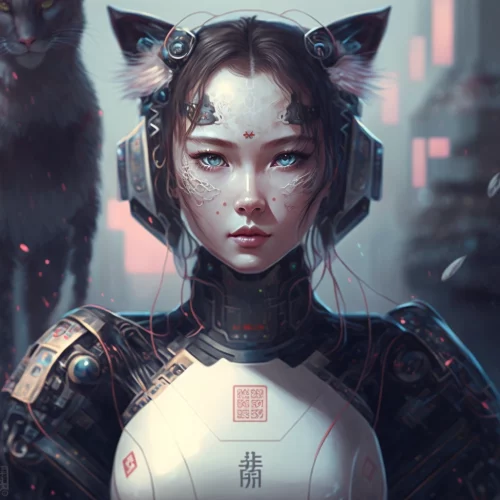AI Adoption on the Rise
AI technology is on the rise. Startups build more and more applications on top of open-source solutions. Companies try to implement them into their workflow. The brave new world is coming.
BY GABRIEL MATTYS
JANUARY 30, 2023
In the last few years, the rapid development of Large Language Models (LLMs) such as GPT-3 (OpenAI), T5 and LaMDA (Google) let people interact with machines in a human-like manner. This triggered the rise of startups trying to build solutions on top of this technology.
Have a look at this generative AI market tech map. These numbers prove that investors are excited about AI technology. Let’s take a closer look at the latest examples of the AI gold rush.
Baidu’s ChatGPT-like bot
Does ChatGPT trigger Baidu to launch its own AI conversational bot?
On the 30th of January, 2023, Baidu, the largest Chinese search engine, announced plans to roll out an artificial intelligence chatbot in March. The name is yet unknown but this chatbot will be built on Baidu’s large-scale machine-learning model. PCL-BAIDU Wenxin or “ERNIE 3.0 Titan” is a pre-training language model with 260 billion parameters. Robin Li, the company CEO, said that it’s not easy to develop and launch a generative AI tool that everyone needs. This implementation will change the way of searching for information.
Microsoft also announced the integration for Bing and ChatGPT. They also planned their release date in March.

ChatGPT enters the media industry: BuzzFeed and CNET
One of the biggest digital content creators BuzzFeed plans to use ChatGPT for generating content. Accordingly to Jonah Peretti, the company’s co-founder, they’ll use AI for generating quizzes, brainstorming, and for personalized content creation. After this statement, BuzzFeed shares skyrocketed more than 300%. Although, the question of quality remains open, despite digital media owners’ claims that AI-powered content will help them grow their businesses.
Another US-based news outlet CNET faced negative criticism after using artificial intelligence. CNET was blamed for low-quality content with errors. The team disclosed that they created around 80 articles with AI and it wasn’t ChatGPT. After, readers revealed errors in publications CNET explained it was part of a test project. Nevertheless, CNET Editor-In-Chief Connie Guglielmo, said they wouldn’t stop using AI but will improve the process to avoid problems in the future.
MusicLM is Google’s text-to-voice model
Will people try to make everything with AI?
Google has unveiled MusicLM, a cutting-edge text-to-music model that creates high-quality music from text descriptions. The model is not yet available to the public, but one can preview its amazing capabilities through various audio examples available online. These samples showcase the model’s incredible versatility in terms of instruments, styles, genres, epochs, locations, and musicians’ skill levels. The model even has the ability to work with hummed or whistled melodies, making it possible to generate music that is stylistically in line with a multimodal prompt of both text and melody. To support further research, Google has also released the MusicCaps dataset, a collection of 5500 music-text pairs. With its ability to produce high-quality music that accurately reflects the input text, MusicLM has the potential to revolutionize the way we make music and interact with it.
This year, AI music generators could experience a similar surge in popularity as AI image generators did in 2022.
Every day we see press releases about companies incorporating AI into their business workflows. Our nearby future will be filled with artificial intelligence applications of all types and shapes. It’s a simple choice for businesses: adapt or die!